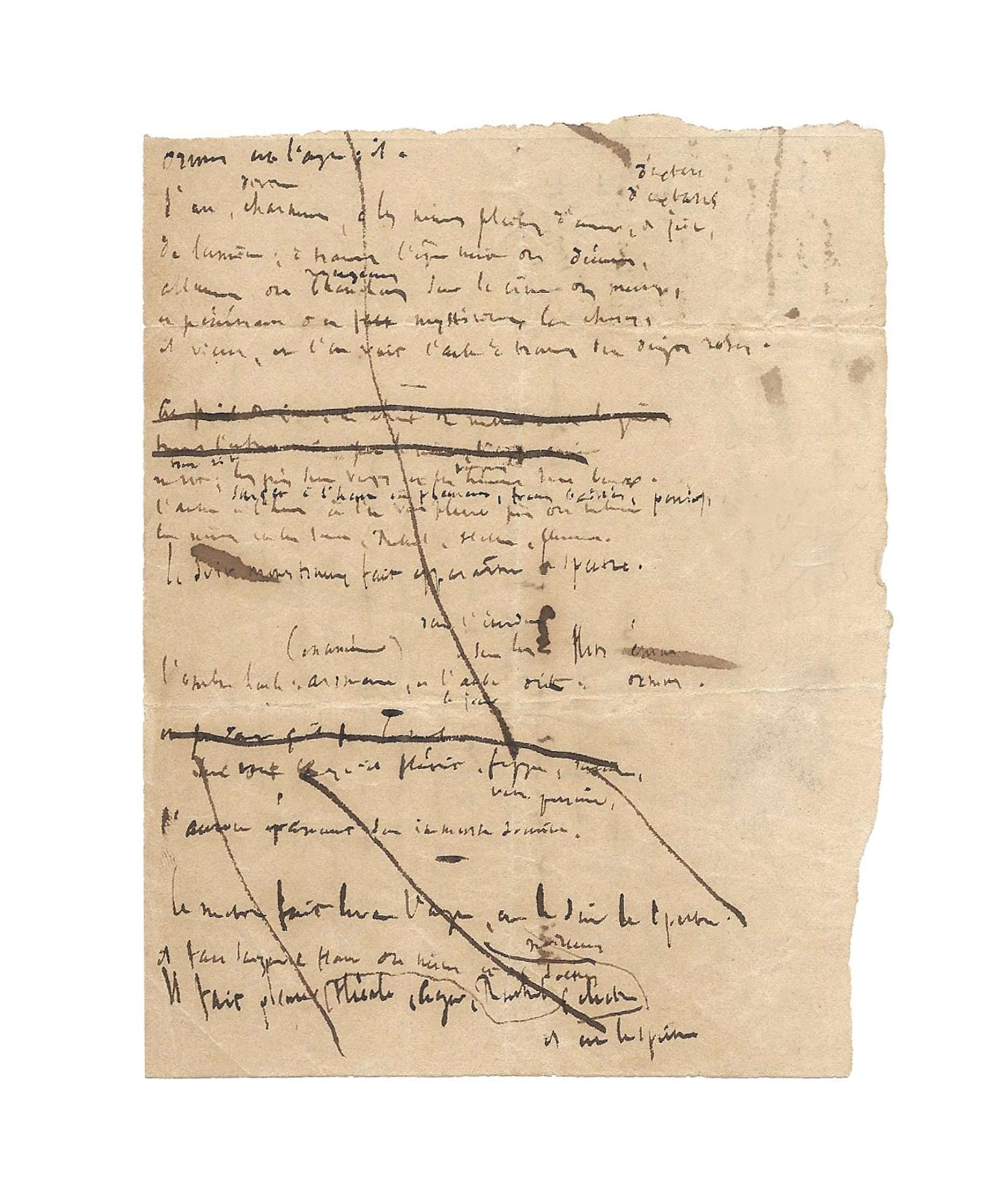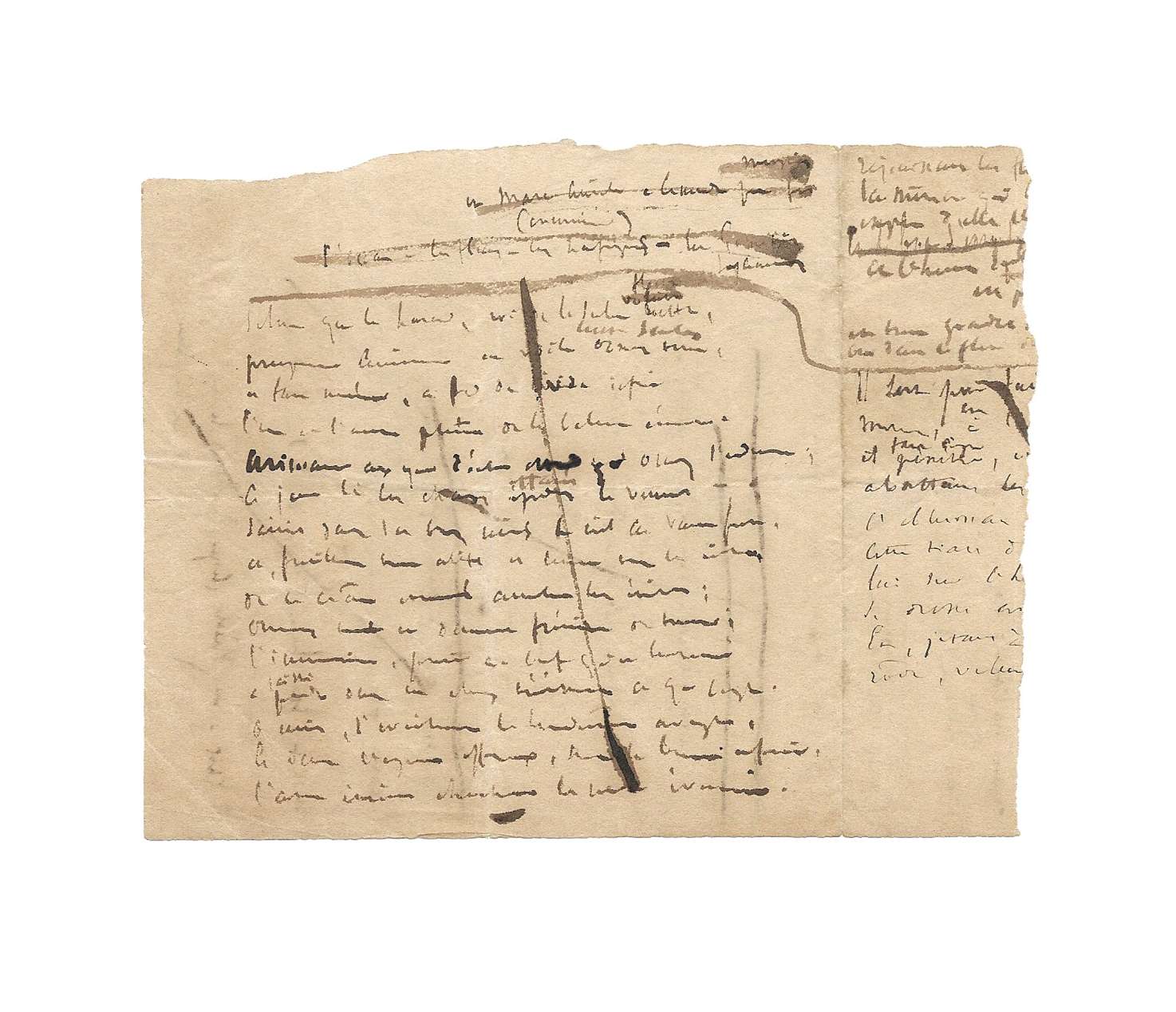HUGO, Victor (1802-1885)
Autograph manuscript (copeau)
N.p.n.d [Hauteville-House], 2 p. in-8°
« He comes, and we see the dawn through his pink fingers »
Fact sheet
HUGO, Victor (1802-1885)
Autograph manuscript (copeau)
N.p.n.d [Hauteville-House], 2 p. in-8°
Tears on two margins (see scans)
Precious working manuscript from which emerge some stanzas of first draft for his monumental poem Dieu, published posthumously
The present copeau [chip] (this is how Victor Hugo himself had adopted this metaphor for these pieces of paper on which he worked his poems and novels) includes a fragment of the third part of the poem Dieu – L’Océan d’en haut [The Ocean from above]. The passage in question corresponds to the raven’s speech:
« Allumant des blancheurs sur la cime des monts,
Et pénétrant d’un feu mystérieux les choses,
Il vient, et l’on voit l’aube à travers ses doigts roses ;
Et tout rit ; l’herbe est verte et les hommes sont doux.
L’autre surgit a, l’heure où pleurent à genoux.
Les mères et-les sœurs, Rachel, Hécube, Électre ;
Le soir monstrueux fait apparaître le spectre ;
…
Sur tout cet univers que l’ombre veut proscrire,
L’aurore épanouit son immense soutire !
[…]
L’ombre hurle Arimane et le jour dit Ormus ! »
This first-draft manuscript offers many variants with the published version.
On the back, another working manuscript, also by Victor Hugo.
Begun as early as 1855 (Hugo read passages to his friends and family that year), the poem met much the same fate as La Fin de Satan. However, unlike the latter, Hugo will sometimes draw entire groups of worms to reuse them in other projects. Dieu is part with La Fin de Satan and La Légende des siècles of an immense ensemble intended to describe the three faces of Being. The poem takes the form of an inner and mystical quest.
The poem was published posthumously in 1891.
Bibliography:
Victor Hugo – Œuvres poétiques, t. III, éd. Jacques Truchet, Pléiade



